A private way to stay in touch
While nothing on the internet is truly private, having a public Facebook account comes with extra privacy risks. Every picture you add to your Facebook page, every friend request and event invitation you accept – all of it is monitored by the company.
If you’re done worrying about what that information could potentially be used for, there are a few ways out aside from deleting your Facebook account for good. You could either deactivate your Facebook and switch to Messenger to keep in touch with your friends, or – if you’re not ready to stop using the Facebook app – create a new anonymous Facebook account.
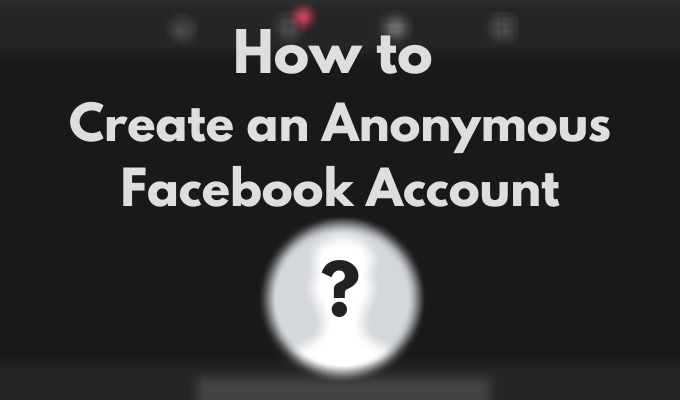
Why Create an Anonymous Facebook Account
Staying anonymous on Facebook protects your privacy in more than one way. Should Facebook ever be compromised, you’ll be in the clear if you used a fake name and information when registering your account. That means you don’t have to worry about your personal data falling into the wrong hands.
Another reason to go anonymous is to avoid unwanted attention from your work colleagues or people from school. With an anonymous account, you don’t have to add acquaintances and people you barely know out of politeness and allow them to snoop on your private life on Facebook. At the same time, your friends and people that you actually want to have on your friends list will still know who you really are, so you won’t be totally disconnected from the digital world.
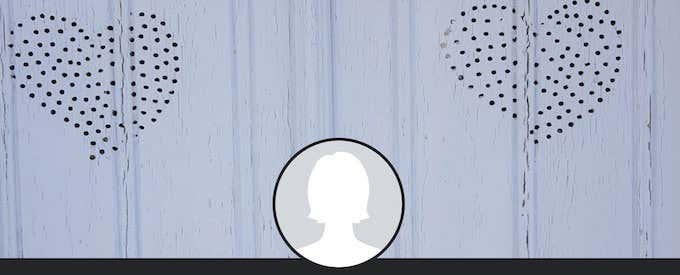
Finally, you might want to create an anonymous Facebook account for professional reasons. For example, if you’re running a Facebook page for a business and want to be an admin, you’ll have to tie it to your Facebook account.
How to Make an Anonymous Account on Facebook
When creating an anonymous Facebook account, remember to keep it simple. That’s the best strategy for when you want to blend in. Follow the steps below to set up your anonymous Facebook page.
1. Create a Burner Email or Phone Number
You’ll need an email address or a phone number to create a new Facebook account. If you use your personal email address, especially one you used to sign up for other websites, it can be tied to your data. The best course of action is to use a temporary burner email or phone instead.
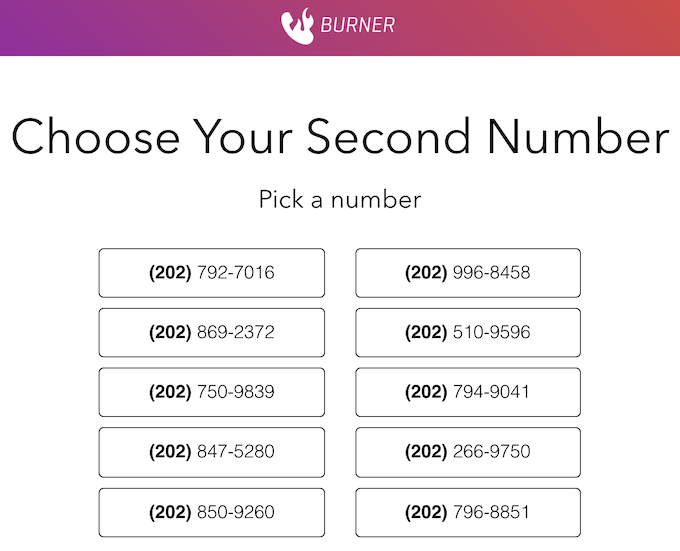
To create a burner phone number, you can use a service like Google Voice or Burner app. Alternatively, make a new email account without adding any personal details.
2. Create a Facebook Account
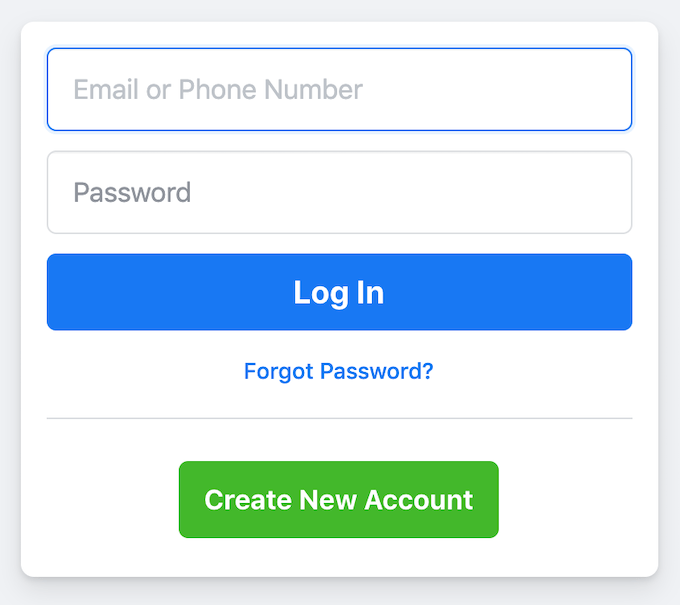
Now that you have a burner phone number or email address, you can use it to sign up for Facebook.
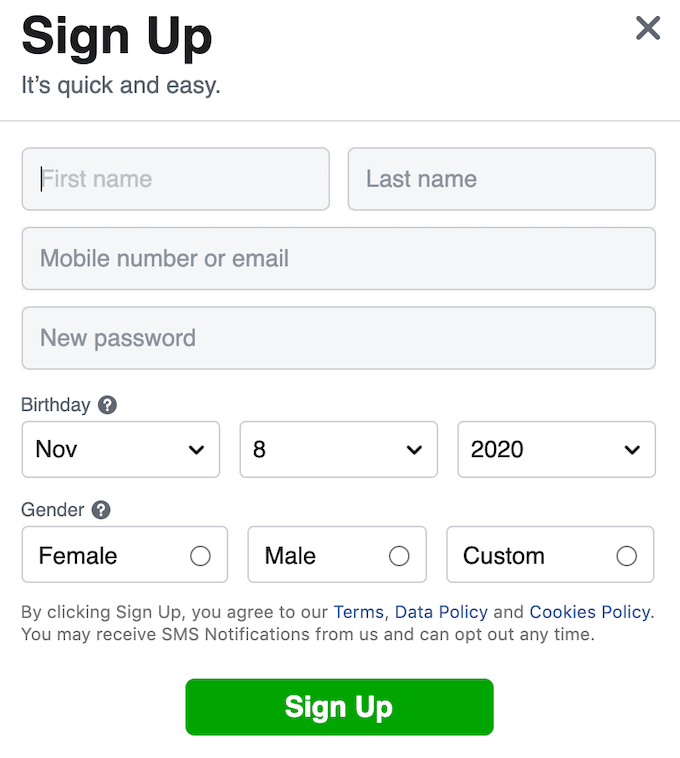
Go to Facebook.com and select Create New Account. Use a fake first and last name, fill in your email or phone number, add a fake birthday and gender. Make sure not to use any of your real details to avoid accidentally revealing your identity. Select Sign Up to confirm. You’ll then receive a confirmation email or a text message from Facebook.
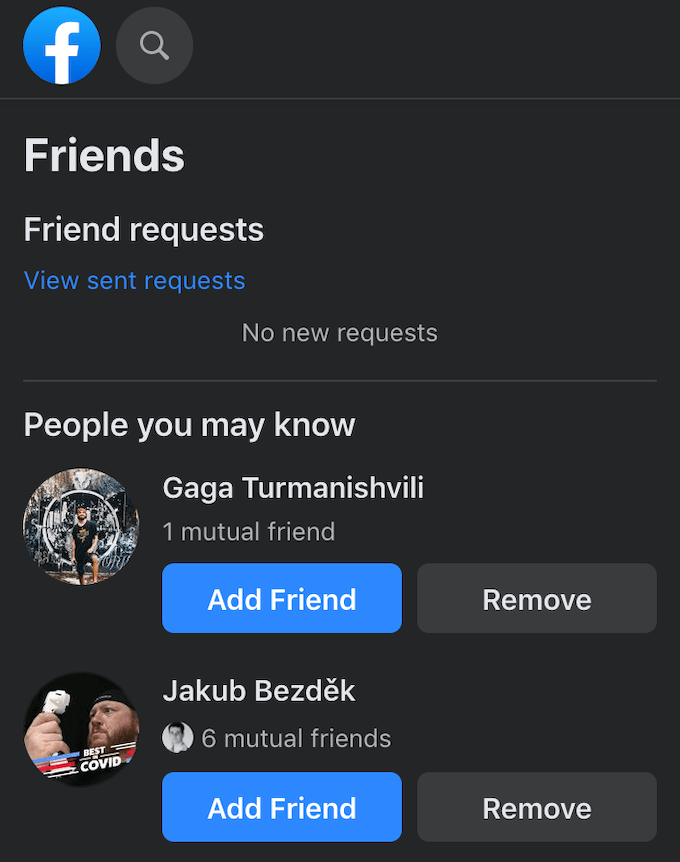
Facebook will also ask permission to access your contacts. Select No to deny access, otherwise your profile will appear in the People You May Know section of other Facebook users.
3. Start Adding Friends
Now that your new Facebook account is confirmed, you can add a profile picture or an avatar and start adding friends. Make sure you only add people who you know personally and who are trustworthy. You don’t want your contacts to share the link to your new Facebook page with other users.
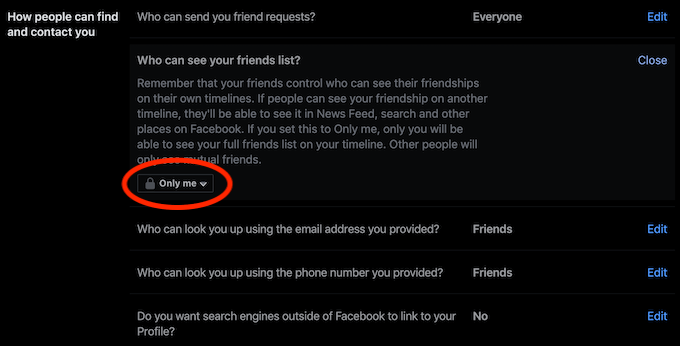
To avoid other users guessing your identity by looking at who you have in your friends list, set it to private in your Facebook settings. To do that, follow the path Settings & privacy > Settings > Privacy > How people can find and contact you. Under Who can see your friends list, select Friends or Only me to limit other Facebook users’ access to your friends list.
How to Keep Your Privacy on Facebook
Once you start using your private Facebook account, you’ll need to be mindful of your actions on Facebook to keep your presence on the platform anonymous. Aside from simple things like not adding a photo with your face as your profile picture, there are other mistakes that you can make that will jeopardise your anonymity on Facebook. Here are a few tips that will help you stay truly anonymous.
Check Your Privacy Settings
One of the first things to do after you create your anonymous account is to do a privacy checkup on Facebook and adjust your privacy settings so that you’re not discovered by other users.
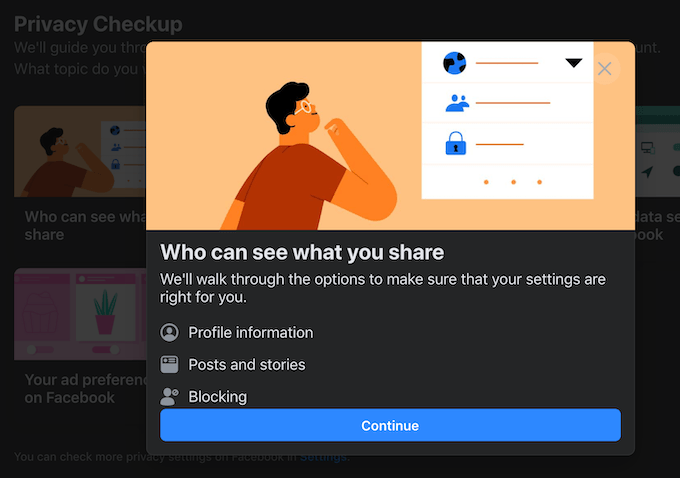
In the privacy settings section, you can review who can see your Facebook posts and your friends list, as well as who can contact you on the platform. This will help you keep your activity on Facebook as private as possible.
Never Use Your Real Name on Your New Facebook Page

One of the first things Facebook will ask you to do is to fill in your first and last name. However, after you create the account, you can also customize it by editing your id handle (or username) and changing it from random characters to your name or nickname. It’s best to avoid using anything that can be linked back to your real identity.
Keep Your Personal Details Off Your Bio
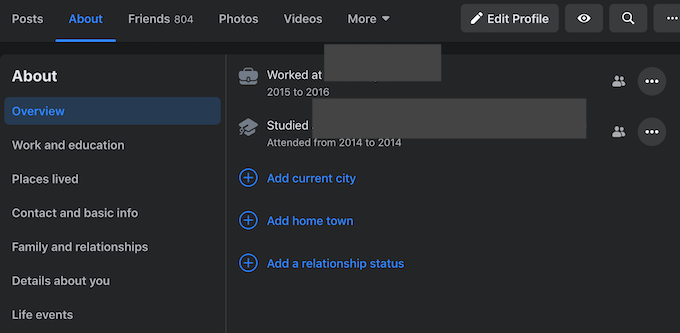
When you create a new account, Facebook will constantly prompt you to fill in your About section. Even if you don’t think the information you’re sharing is relevant, it’s best to keep any (real) personal details off your Facebook page to keep it anonymous.
Don’t Interact With Other Users Publicly
The main reason why people choose to stay on Facebook is to be able to interact with other users. However, if you want to keep your presence on the platform unnoticed, you’ll have to refrain from commenting on people’s photos or wishing them a happy birthday publicly. Your common friends could make the connection and your profile won’t be anonymous anymore.
To keep your private Facebook account truly private, avoid any public activity or interaction with other people and use direct messages instead.
Stay Anonymous While on Facebook
Having an anonymous Facebook account is a great solution for anyone who’s concerned about their online privacy but also isn’t ready to quit social media. Instead of deleting your Facebook account, you get to keep it and preserve your digital social life. All without endangering your personal data.
Do you have an anonymous Facebook account? What do you find the most difficult about maintaining anonymity on Facebook? Share your Facebook experience with us in the comments below.




